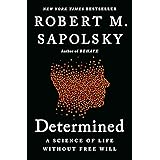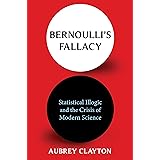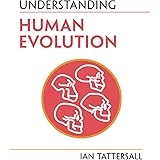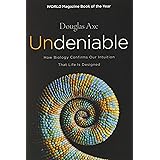
Enjoy fast, free delivery, exclusive deals, and award-winning movies & TV shows with Prime
Try Prime
and start saving today with fast, free delivery
Amazon Prime includes:
Fast, FREE Delivery is available to Prime members. To join, select "Try Amazon Prime and start saving today with Fast, FREE Delivery" below the Add to Cart button.
Amazon Prime members enjoy:- Cardmembers earn 5% Back at Amazon.com with a Prime Credit Card.
- Unlimited Free Two-Day Delivery
- Streaming of thousands of movies and TV shows with limited ads on Prime Video.
- A Kindle book to borrow for free each month - with no due dates
- Listen to over 2 million songs and hundreds of playlists
- Unlimited photo storage with anywhere access
Important: Your credit card will NOT be charged when you start your free trial or if you cancel during the trial period. If you're happy with Amazon Prime, do nothing. At the end of the free trial, your membership will automatically upgrade to a monthly membership.
Buy new:
-40% $16.68$16.68
Ships from: Amazon Sold by: Emmas Store
Save with Used - Good
$8.51$8.51
Ships from: Amazon Sold by: Murfbooks

Download the free Kindle app and start reading Kindle books instantly on your smartphone, tablet, or computer - no Kindle device required.
Read instantly on your browser with Kindle for Web.
Using your mobile phone camera - scan the code below and download the Kindle app.

OK
 Audible sample Sample
Audible sample Sample 


Improbable Destinies: Fate, Chance, and the Future of Evolution Hardcover – August 8, 2017
Purchase options and add-ons
Earth’s natural history is full of fascinating instances of convergence: phenomena like eyes and wings and tree-climbing lizards that have evolved independently, multiple times. But evolutionary biologists also point out many examples of contingency, cases where the tiniest change—a random mutation or an ancient butterfly sneeze—caused evolution to take a completely different course. What role does each force really play in the constantly changing natural world? Are the plants and animals that exist today, and we humans ourselves, inevitabilities or evolutionary flukes? And what does that say about life on other planets?
Jonathan Losos reveals what the latest breakthroughs in evolutionary biology can tell us about one of the greatest ongoing debates in science. He takes us around the globe to meet the researchers who are solving the deepest mysteries of life on Earth through their work in experimental evolutionary science. Losos himself is one of the leaders in this exciting new field, and he illustrates how experiments with guppies, fruit flies, bacteria, foxes, and field mice, along with his own work with anole lizards on Caribbean islands, are rewinding the tape of life to reveal just how rapid and predictable evolution can be.
Improbable Destinies will change the way we think and talk about evolution. Losos's insights into natural selection and evolutionary change have far-reaching applications for protecting ecosystems, securing our food supply, and fighting off harmful viruses and bacteria. This compelling narrative offers a new understanding of ourselves and our role in the natural world and the cosmos.
- Print length384 pages
- LanguageEnglish
- PublisherRiverhead Books
- Publication dateAugust 8, 2017
- Dimensions6.5 x 1.25 x 9.25 inches
- ISBN-100399184929
- ISBN-13978-0399184925
Frequently bought together

Similar items that may ship from close to you
Editorial Reviews
Review
“This is a wonderfully serious book with a lighthearted voice. Is evolution predictable or contingent? Big question. Why do adaptations converge? Big question. Why is the platypus unique? Smaller question, but fun! Read, enjoy, think.” —David Quammen, author of The Song of the Dodo and Spillover
“Packed with stories of capturing lizards in the field, Improbable Destinies explores how we think evolutionary changes happen in populations, from mice to microbes to sticklebacks. Get this for the backyard biologist in your life.” —Popular Science
“Deep, broad, brilliant and thought-provoking. . . . In staggeringly clear and engaging prose, Losos shows us remarkable vignettes of scientists working at personal and professional risk in all sorts of habitats — field, lab and museum — to elucidate stunning mechanisms of evolution. . . . He is one of the premier writers in biology today.” —Nature
“[A] compelling book.”—Science
“In a refreshingly accessible narrative, laced with piquant anecdotes, Losos underscores the human significance of science affecting not only how we interpret our own place on the planet but also how we envision life in distant galaxies. Wonderfully lucid; singularly engaging.” —Booklist (starred review)
“A thoroughly accessible analysis of whether evolution is one big crapshoot or rather mundanely predictable. No spoilers here, but the evidence presented on both sides makes for some thought-provoking reading.”—Washington Independent Review of Books
“A cheerful, delightfully lucid primer on evolution and the predictive possibilities within the field.” —Kirkus (starred review)
“Every now and then a brilliant book comes along that helps us rethink what we know about a subject. Jonathan B. Losos’ fascinating, compulsively readable Improbable Destinies is just such a book. . . . With vivacious writing and thoughtful, provocative insights, Losos’ captivating study of evolution deserves to be read alongside the books of E.O. Wilson (The Social Conquest of Earth) and Stephen Jay Gould (Wonderful Life).” —BookPage
“Improbable Destinies is one of the best books on evolutionary biology for a broad readership ever written. Its subjects—the unfolding of Earth’s biological history, the precarious nature of human existence, and the likelihood of life on exoplanets—are presented in a detailed, exciting style expected from an authentic scientist and naturalist.” —Edward O. Wilson, University Research Professor Emeritus, Harvard University
“Losos explains both the science and the underlying philosophy of the questions being asked in an accessible and engaging manner . . . The book is as enjoyable as it is informative.” —Publishers Weekly
“Is evolution a story foretold? Or is it little more than the rolls of DNA's dice? In Improbable Destinies, Jonathan Losos tackles these fascinating questions not with empty philosophizing, but with juicy tales from the front lines of scientific research. Drunk flies, fast-evolving lizards, mutating microbes, and hypothetical humanoid dinosaurs all grace the pages of this wonderfully thought-provoking book.” —Carl Zimmer, author of A Planet of Viruses and The Tangled Bank
“Improbable Destinies is a crackling good read, threading rich anecdote into trenchant science. It belongs on the same shelf as I Contain Multitudes, Ed Yong’s gorgeously crafted account of microbes and their critical roles in our bodies; Nick Lane’s dense, groundbreaking work on the origins of life, The Vital Question; and other recent books that grapple with Darwin’s revolution, such as Richard O. Prum’s The Evolution of Beauty and Robert M. Sapolsky’s Behave.” —The Barnes & Noble Review
“A rich, provocative, and very accessible book, Improbable Destinies is an exclusive behind-the-scenes tour of the ecological theater and evolutionary play of life, expertly guided one of its most insightful observers. Jonathan Losos has shone a light on a largely unheralded cast of fascinating creatures and ingenious scientists who are reshaping our view of why life is the way it is.” —Sean B. Carroll, author of The Serengeti Rules and Brave Genius
About the Author
Product details
- Publisher : Riverhead Books; First Edition (August 8, 2017)
- Language : English
- Hardcover : 384 pages
- ISBN-10 : 0399184929
- ISBN-13 : 978-0399184925
- Item Weight : 1.35 pounds
- Dimensions : 6.5 x 1.25 x 9.25 inches
- Best Sellers Rank: #357,030 in Books (See Top 100 in Books)
- #616 in Zoology (Books)
- #905 in Evolution (Books)
- #1,494 in Biology (Books)
- Customer Reviews:
About the author
Customer reviews
Customer Reviews, including Product Star Ratings help customers to learn more about the product and decide whether it is the right product for them.
To calculate the overall star rating and percentage breakdown by star, we don’t use a simple average. Instead, our system considers things like how recent a review is and if the reviewer bought the item on Amazon. It also analyzed reviews to verify trustworthiness.
Learn more how customers reviews work on Amazon-
Top reviews
Top reviews from the United States
There was a problem filtering reviews right now. Please try again later.
On the one hand, Dr. Simon Conway Morris, a Cambridge paleontologist, sides with determinism. He maintains that if we could rewind the clock and start the “Cambrian Explosion” all over again, some intelligent biped very like us would inevitably arise again. Animals will evolve similar solutions to similar challenges, just like sharks, ichthyosaurs, and dolphins in the sea, or pterodactyls, birds, and bats in the air. Thus paleontologist Dale Russell has speculated that if that Chicxulub Asteroid had never wiped out the dinosaurs, the dinosaur Troodon might have evolved into an intelligent humanoid, a vertical biped with that distinctive green lizardly charm.
On the other hand, Dr. Stephen J. Gould, a Harvard paleontologist, sides with contingency. He maintains that if we could go back in time to the age of the Burgess Shales of Cambrian times and restart the evolutionary ball rolling from there, the biosphere of our twenty-first century would be unrecognizable. Thus if that nasty asteroid 66 million years ago had whizzed past the earth in a near miss, that intelligent dinosaur would have more likely looked like a Troodon with a long birdlike bill—a horizontal biped with a long tail _a_tergo_ to balance its large brainy head at the other end.
This debate is the topic of this book by Dr. Losos. His conclusion? The truth lies somewhere in the middle. To cite but one of his many examples, he discusses the native mammals of Australia. On the side of determinism, many of the marsupial fauna strikingly resemble their placental counterparts elsewhere on the planet. Thus the placental mole, flying squirrel, marmot, cat, and wolf of North America find eerie parallels among the fauna of Australia, such as the extinct Tasmanian wolf. On the side of contingency, however, there are no close placental parallels to the platypus, koala, or kangaroo.
Gould’s thought-experiment is infallible—if only it were doable! Admittedly, we cannot restart the Cambrian, but Losos and his colleagues have done the next-best thing by conducting experiments and field studies that have repeated the evolution of species well within a human lifetime. It is impossible to summarize his book at all adequately in an Amazon review, but please consider the following brief examples.
Losos earned his Ph.D. with his research on the anole lizards of the four island of the Greater Antilles: viz., Cuba, Hispaniola (i.e., Haiti & Dominican Republic), Puerto Rico, and Jamaica. Lizards of the genus _Anolis_ are armed with toe pads that enable them to climb vertically on trees.
Beginning his studies on Jamaica, Losos discovered four distinct species, each suitably camouflaged to blend in with its arboreal environment: the brown bush anole on the ground and low tree trunks, the aquamarine Graham’s anole among the leaves and upper tree trunks, the drab twig anole with unusually short legs ideal for furtively climbing along twigs—and the much larger Garman’s anole lacking any qualms against preying upon its sister species!
Losos subsequently discovered that each of the four Puerto Rico species has a counterpart on each of the other three islands of the Greater Antilles. One would suppose that each species would be most closely related to its look-alike counterpart on the other three islands, but DNA studies have demonstrated that each species actually shares a more recent common ancestor with the other species living on its home island.
Thus Losos got the idea to reduce Neo-Darwinian evolution to an experimental science. In the Bahamas, he and his colleagues Amy & Tom Schoener experimentally “seeded” one islet after another with a single species of anole, and within a human lifetime, they documented the lizards evolving genetically to function in different environments. When a lizard species was introduced to a particular island, over time its legs would evolve to be shorter if necessary for climbing on slender twigs inaccessible to predators, and its legs would get longer form one generation to the next if necessary for walking, running, or climbing on broader surfaces. Furthermore, when curly-tailed lizards (which prey upon anole lizards) were introduced into some islets but not others, the anoles facing predation evolved short legs to climb on slender twigs high in the trees where the predators could not reach them, unlike their counterparts on the predator-free islets. In his experiments, Losos followed in the footsteps of other biologists: e.g., Rosemary & Peter Grant studying evolutionary change in Darwin’s Finches in the Galápagos Islands; David Reznick and John Endler inducing evolutionary change in guppies by introducing predator pike cichlid fish into their pools (Reznick on site in the mountains of Trinidad, and Endler in laboratory studies); Dolph Schluter replicating the speciation of fresh-water sticklebacks in the lakes of British Columbia in his laboratory experiments--and much more besides.
In justice, remember mercy! In particular, two criticisms of Losos’ book are less than fair. First, he has been taken to task for his human-interest fluff—about his run-in with drug-runners when his outboard motor died during his trip in the Bahamas, among other adventures. In reality, publishers will not even touch a book for a general audience unless it is filled with personal anecdotes, as we read in the book by Rabiner & Fortunato, Thinking Like Your Editor: How to Write Great Serious Nonfiction and Get It Published . Second, he has taken some flak for all the scientific detail that bores his readers to death. On the one hand, I know I am not going to remember all the details of all the experiments that were performed to answer every conceivable objection. However, I am glad that the researchers covered all the bases so that the creationists and intelligent-designists cannot honestly accuse the researchers of sloppy work and dismiss evolution as “just a theory.”
Two constructive criticisms of my own! First, when taken out of context, some of Dr. Losos’ statements can be misconstrued as saying that evolution is nothing but a theory of blind chance. Of course, I know what he meant, but in his preface, it would have been wise for him to drive home the point that mutation is random, but selection is the non-random FILTER of mutation. Evolution proceeds a hundred steps forward and ninety-nine steps back, again and again and again. Creationists claim they accept micro-evolution within the “baramin” or created kind, but not macro-evolution from one “kind” to the next. They beg the question by gratuitously asserting that there is a genetic brick wall that blocks evolution beyond the created kind. Creationists assert this premise as if it were the default or null hypothesis, and gratuitously slap the burden of disproof onto scientists to prove the contrary. Actually, there is not a shred of evidence for a barrier to the indefinite accumulation of beneficial mutations. A user-friendly introduction for the intelligent non-expert can be found in (for instance) Richard Dawkins’ Blind Watchmaker Why the Evidence and Climbing Mount Improbable .
Second, I wish he had included the tale of the Italian wall lizard _Podarcis_sicula_ of southern Europe, including the islet Pod Kopište near the Croatian island of Lastovo. In 1971, scientists introduced ten specimens, divided equally between males and females, from Pod Kopište to the nearby islet of Pod Mrčaru, two miles away, which up to that point had been free of that particular species of lizard. (In case anybody cares, the Croatian letters “č” and “š” with the “hats” on top are pronounced respectively as “ch” and “sh.”) In 2008, scientists from the Universities of Antwerp under the leadership of Anthony Herrel returned to the two islands and found that the lizard population in Pod Mrčaru had evolved some dramatic differences from the parent population. Now Pod Kopište is mostly rocky, whereas Pod Mrčaru is covered with vegetation. The vegetation effectively hides and protects prey from predators, whether the prey be insects hidden from lizards, or lizards hidden from larger predators. Whereas the lizards on the parent island subsist mostly on insects and eat little plant food, the lizards in the colonized island subsist mostly on foliage. Furthermore, food is far more abundant in the colonized island. Whereas the lizards on the parent island stake out and defend territories to maintain their precarious food supply, the lizards in the colonized island obtain enough food in the form of foliage to give up these belligerent ways. The lizards on the colonized island grew bigger heads with a stronger bite to aid them in biting off plant material. Conversely, their legs were shorter and they were bigger and more sluggish than before because they did not have to work so hard chasing insects or hiding from predators. In the intestines of the lizards in the colonized island, caecal valves newly appeared, a novelty absent in the parent population. These valves partially close off a part of the intestine to form a special chamber where cellulose from plant food can be chemically broken down by nematode worms and microbes into simple sugars absorbable in the intestine. (Nematodes, by the way, are not found in the guts of the parent population.) This substantial amount of evolution took place in only thirty-seven years. (For details, see Richard Dawkins’ The Greatest Show on Earth: The Evidence for Evolution , pp. 113-116; Carl Zimmer’s By Carl Zimmer - The Tangled Bank: An Introduction to Evolution , pp. 102-104; and Wikipedia—Italian wall lizard.)
“a set of mutations, occurring in just the right order, can have a major impact, sending evolution down a different, unrepeated path (p. 296). Experimental populations facing the same natural selection pressures usually adapt in the same way...Necessity trumps chance. Usually … It’s not common, but [chance] does happen (p. 298)”.
The author wisely stays within science, avoiding metaphysical issues, which spoil quite some books on evolution. But I missed attention to catastrophe theory which could have strengthened some of the discourse.
Being relevant for macro-historic processes as a whole, this book deserves a broad readership.
Professor Yehezkel Dror
The Hebrew University of Jerusalem
Top reviews from other countries
Recomendo fortemente a todos, biólogos e não biólogos.












